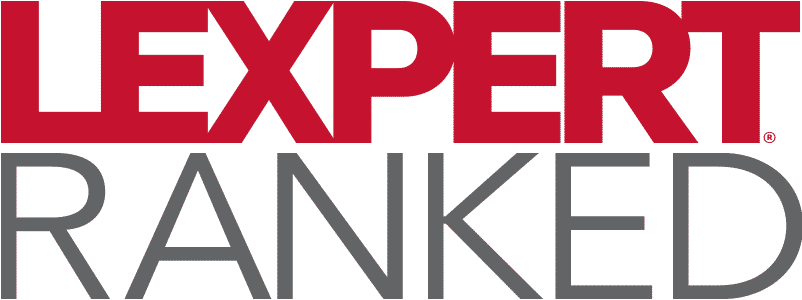

Commodity Tax/Customs law encompasses matters concerning the federal goods and services tax (GST), various provincial sales taxes, customs and excise issues, and related matters involving the domestic and international supply of property and services. Given the degree of specialization involved in their practice, commodity tax lawyers often engage in all aspects of commodity tax work, from the solicitor-type work involved in the planning stage, to litigation work as matters progress from the level of administrative review, to the federal and provincial courts of first instance, and on to the Courts of Appeal and beyond.
Please note that there is a separate section in the Lexpert Directory for the best International Trade Regulation lawyers.
Commodity Tax is an encompassing general term of the broad consumption-based taxes in Canada. The best commodity tax lawyers in Canada are specialized in its different areas, such as:
Generally, commodity tax are consumption-based taxes levied on commodities, upon shipment from the manufacturers or upon importation from a foreign country. It applies to both products produced locally or internationally.
Commodity taxes may differ in each province, depending on the application of GST, HST, PST, Customs Duties, and other taxes.
Goods and Services Tax (GST) is the 7% tax levied upon various commodities and services, except if those commodities and services are tax-exempt or are zero-rated under Schedules V and VI of the Excise Tax Act (ETA). GST is the value-added taxing system of Canada, finding its legal basis under Part IX of the ETA, whose main agency responsible for its regulation is Canada Revenue Agency (CRA).
The GST should be charged, collected, and remitted on their taxable commodities and services by all suppliers or manufacturers, hence, these suppliers or manufacturers are also required to register with the CRA. GST registrants may also recover the GST paid through input tax credits (ITCs), if their commodities or services are taxable and not exempted therefrom.
Harmonized Sales Tax (HST) is essentially the GST levied on commodities as a result of the “harmonization” of the services tax and the sales tax. HST is over and above the GST, which means that taxes in specific provinces are higher compared to others. It is also imposed by the ETA, hence, HST follows the general rules on the implementation of GST.
Provincial Sales Tax (PST) is the sales tax or importation tax imposed on commodities and services by a particular province. It is paid by consumers upon purchase, except if the goods for resale or a specific exemption would apply. After the implementation of HST by some provinces, PST is only implemented by British Columbia, Saskatchewan, Manitoba, Ontario and Prince Edward Island.
Customs duties are taxes or levies imposed upon the importation of goods, while at the same time prohibiting both the importation and exportation of certain goods. The governing laws for the custom duties are the Customs Act and the Customs Tariff.
Commodity tax lawyers can assist clients in the various field of commodity taxation, such as, GST or HST, registration, tariff classification, international trade, customs valuation, tax litigation, import and export restrictions, taxes of specific commodities, among others.
Commodity taxes – namely GST, HST, or PST – are applied to commodities and services, subject to some exceptions – either zero-rated or tax-exempt.
Taxable commodities and services generally are:
Speak to a commodity tax lawyer below for complete clarification.
Zero-rated or those which are taxable at 0% are basic groceries, books, most agricultural and fishery goods, most farm livestock, prescription drugs and drug-dispensing services, certain medical devices such as hearing aids and artificial teeth, and feminine hygiene products. A commodity tax lawyer will make sure that these items are taxed properly during their lifetime.
Tax-exempt commodities are sale of housing previously used as a residence, long-term rentals, most health, medical, and dental services, child care services, most domestic ferry services, legal aid services, most educational services, most services provided by financial institutions, issuance of insurance policies, and charities and public institutions.
While both zero-rated and tax-exempt means that GST or HST are not collected on these commodities and services, the difference between the two is that for zero-rated commodities, vendors are eligible to claim ITCs to recover GST or HST, whether paid or payable; while it is not the same for those which are tax-exempt. The only qualification is that the vendor must be a GST or HST registrant for these exemptions to apply. Contact one of the best commodity tax lawyers near you from the list below for assistance.
As mentioned above, HST is a type of commodity tax that is imposed on commodities and services which may collectively differ in each province, after its implementation in 1997. This resulted to a higher rate of taxes (15% for New Brunswick, Newfoundland and Labrador, Nova Scotia, and Prince Edward Island; and 13% for Ontario).
Since it is implemented similarly to the GST, some products and services may be exempted from this levy, such as the zero-rated and the tax-exempt. Consumers pay the HST at the point of sale (POS), which are then remitted by the vendors to the CRA. The said taxing agency further allocates the portion of the HST to the province concerned.
Taxes may be complicated, and we’re here to help! Look below for our lawyers who can assist you about taxation.















